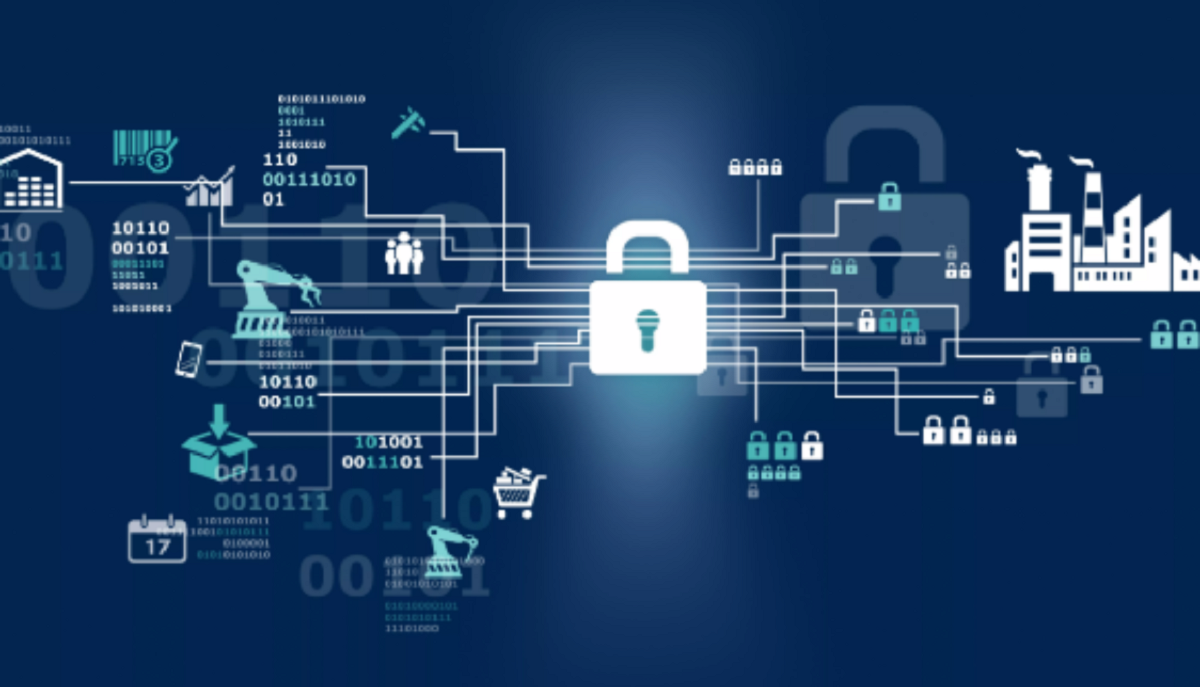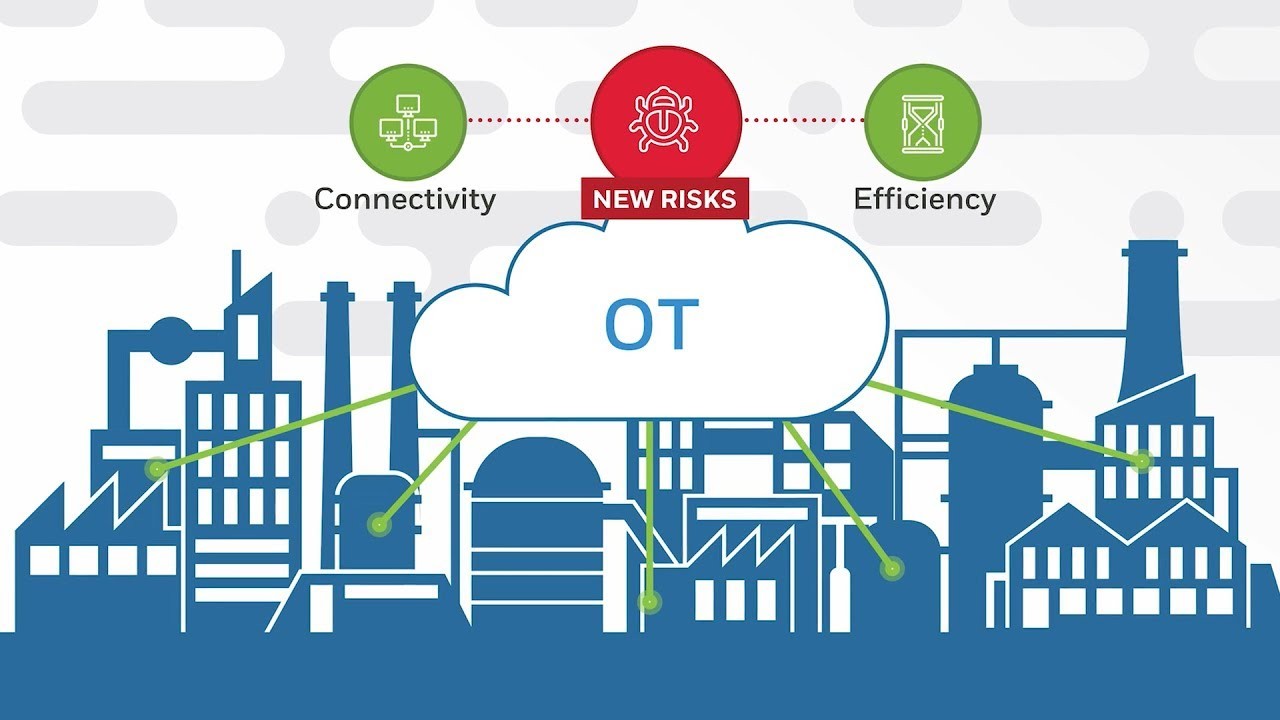Introduction
In today’s digital age, cybersecurity has become a crucial aspect of our daily lives. With the rapid advancements in technology, the need to protect our personal information, prevent cyber attacks, and safeguard national security has never been more important. The increasing reliance on digital platforms and the internet has made us more vulnerable to a myriad of threats, including identity theft, data breaches, and cybercrime.
The importance of cybersecurity extends beyond just our personal lives. It has significant implications for businesses, governments, and societies as a whole. Ensuring the security and integrity of our digital infrastructure is paramount to the smooth functioning of our modern-day society.
In this article, we will delve into the various reasons why cybersecurity is of utmost importance in a modern-day society. From protecting personal information to combating cybercrime, we will explore the multifaceted role that cybersecurity plays in ensuring a safe and secure digital environment.
Nowadays, our personal information is more exposed than ever before. We store a vast amount of sensitive data, such as financial records, personal documents, and even private conversations, on our computers and online platforms. Without proper cybersecurity measures in place, this information becomes vulnerable to unauthorized access and misuse.
Cybercriminals are constantly evolving their techniques to breach security systems and gain access to our personal information. Hence, it is crucial to implement robust cybersecurity practices to protect our sensitive data from falling into the wrong hands. This includes using strong and unique passwords, enabling two-factor authentication, and regularly updating software and antivirus programs.
Cyber attacks have the potential to cause significant disruptions on a global scale. From government agencies to multinational corporations, no entity is immune to the threat of cyber attacks. Malicious actors can exploit vulnerabilities in computer systems, disrupt critical services, and even steal intellectual property.
By investing in robust cybersecurity measures, we can mitigate the risks of cyber attacks and ensure the continuity of essential services. This includes implementing firewalls, intrusion detection systems, and conducting regular vulnerability assessments to identify and patch potential weaknesses in our digital infrastructure.
National security is no longer limited to just physical threats. With the growing dependence on interconnected digital networks, the security of a nation is intricately linked to its cybersecurity posture. Malicious actors, whether state-sponsored or individual hackers, can target and exploit vulnerabilities in a nation’s cyber infrastructure to gain unauthorized access to sensitive information or disrupt critical systems.
Protecting national security requires a comprehensive approach to cybersecurity, including robust defense mechanisms, intelligence gathering, and collaboration between governments and private sector entities. Cooperation at the national and international levels is crucial to combatting cyber threats and ensuring the safety and sovereignty of nations.
Protecting Personal Information
In the digital age, our personal information is a valuable asset that must be protected. From financial records to sensitive medical data, we entrust various platforms and organizations with our personal information. However, the increasing number of data breaches and identity theft cases highlights the importance of robust cybersecurity measures to safeguard our personal information.
One of the primary concerns when it comes to protecting personal information is the risk of identity theft. Identity theft occurs when unauthorized individuals gain access to our personal data and use it for fraudulent purposes. This can result in financial loss, damage to our reputation, and even legal implications. Strong cybersecurity measures, such as encryption and secure authentication protocols, are essential to prevent unauthorized access to personal information and mitigate the risks of identity theft.
Moreover, privacy is a fundamental right that must be upheld in the digital era. With the vast amount of personal data we share online, protecting our privacy should be a top priority. Cybersecurity measures like data encryption and access controls help ensure that our personal information remains confidential and only accessible to authorized individuals or organizations.
Furthermore, protecting personal information is crucial to maintain trust in online platforms and e-commerce. Consumers need assurance that their information is secure when making online transactions or sharing personal details on social media. Implementing strong cybersecurity measures is essential for businesses to build and maintain trust with their customers and protect their sensitive information from unauthorized access or theft.
Individuals can take proactive steps to protect their personal information as well. This includes using strong and unique passwords, regularly updating software and apps, being cautious of phishing attempts, and using secure Wi-Fi connections. By practicing good cybersecurity hygiene, individuals can minimize the risk of their personal information falling into the wrong hands.
Overall, protecting personal information is not only crucial for our individual security and privacy but also for fostering trust in the digital ecosystem. With the ever-increasing rise in cyber threats, individuals, organizations, and governments must collaborate to implement stringent cybersecurity measures and ensure the protection of personal information.
Preventing Cyber Attacks
Cyber attacks have become increasingly common and sophisticated, posing significant threats to individuals, businesses, and even nations. Preventing cyber attacks is essential to safeguard our digital infrastructure and minimize the potential harm caused by malicious actors.
One of the most effective ways to prevent cyber attacks is through education and awareness. Individuals and organizations need to stay informed about the latest cyber threats and trends in order to identify and mitigate potential risks. Cybersecurity training programs can help individuals develop a strong understanding of safe online practices and recognize the warning signs of a potential cyber attack.
Implementing robust cybersecurity measures is crucial to prevent cyber attacks. This includes deploying firewalls, antivirus software, and intrusion detection systems to protect against external threats. Regularly updating software and applying security patches is also vital to address known vulnerabilities and strengthen the overall security posture.
Another important aspect of preventing cyber attacks is conducting regular vulnerability assessments and penetration testing. By identifying weaknesses in their systems and networks, organizations can proactively address potential vulnerabilities before they are exploited by hackers. This proactive approach helps in enhancing the resilience and robustness of their cybersecurity defenses.
Strong authentication mechanisms, such as multi-factor authentication, can prevent unauthorized access and protect against credential theft. Encrypting sensitive data and securing networks with strong encryption protocols can also make it more difficult for cyber attackers to intercept and access valuable information.
Collaboration between governments, private sector organizations, and cybersecurity experts is crucial in preventing cyber attacks. Sharing information about emerging threats, attack methodologies, and best practices can help in developing effective countermeasures. Governments can play a vital role by enacting laws and regulations that promote cybersecurity and hold cybercriminals accountable for their actions.
Furthermore, fostering a culture of cybersecurity within organizations is instrumental in preventing cyber attacks. This includes promoting employee awareness, training, and accountability for practicing secure behaviors. Regular security audits and monitoring of network activity can also help in detecting and preventing potential cyber attacks.
Overall, preventing cyber attacks requires a proactive and multifaceted approach. By educating individuals, implementing robust cybersecurity measures, and fostering collaboration, we can significantly reduce the risk of cyber attacks and protect our digital infrastructure.
Safeguarding National Security
In today’s interconnected world, national security is not limited to physical threats alone. With the increasing reliance on technology and digital infrastructure, safeguarding national security in the cyber realm has become paramount. Cyber threats pose significant risks to the economic stability, social welfare, and sovereignty of nations, making effective cybersecurity measures crucial to protect national security interests.
Cyber attacks targeting critical infrastructure, such as power grids, transportation systems, and communication networks, can have severe consequences. The disruption or compromise of these vital systems can disrupt essential services, compromise public safety, and even impact a nation’s ability to respond to emergencies or defend against physical threats.
Ensuring the security and resilience of critical infrastructure requires comprehensive cybersecurity strategies. This includes implementing robust firewalls, intrusion detection systems, and access controls to protect against unauthorized access and potential cyber attacks. Regular assessments of vulnerabilities and penetration testing can help identify and address weaknesses in the system before they are exploited.
Cyber threats can also pose risks to national defense and intelligence capabilities. State-sponsored cyber attacks targeting government systems, defense contractors, and military networks have the potential to compromise classified information and disrupt military operations. Strong cybersecurity measures, including secure communication channels and stringent access controls, are necessary to protect national defense assets and maintain military readiness.
Fostering a cyber workforce with the necessary skills and knowledge is crucial to safeguard national security in the digital realm. Governments must invest in cybersecurity education and training programs to develop a pool of cybersecurity experts capable of defending against sophisticated cyber threats. Collaborating with academia, industry experts, and international partners can enhance the expertise and capabilities of the national cybersecurity workforce.
Intelligence gathering and information sharing are fundamental to protecting national security in the cyber domain. Governments and cybersecurity agencies must actively engage in sharing information about emerging cyber threats, attack methodologies, and best practices. International collaboration and cooperation are vital in combating transnational cyber threats and ensuring global security.
Policy and legal frameworks play a critical role in safeguarding national security in cyberspace. Governments need to enact legislation and regulations that promote cybersecurity, facilitate information sharing, and hold cybercriminals accountable. International agreements and norms can help establish standards for responsible behavior in cyberspace and facilitate cooperation in addressing cyber threats.
Safeguarding national security in the digital age requires a holistic and proactive approach. It involves investing in robust cybersecurity measures, developing a skilled cyber workforce, promoting information sharing and collaboration, and establishing effective policy frameworks. By prioritizing national cybersecurity, governments can protect their citizens, critical infrastructure, and uphold the sovereignty and stability of nations.
Protecting Critical Infrastructures
Modern societies heavily rely on critical infrastructures such as power plants, water treatment facilities, transportation systems, and communication networks. These infrastructures are essential for the functioning of society and the economy. However, they are increasingly vulnerable to cyber threats that can disrupt services, cause economic losses, and compromise public safety. Therefore, protecting critical infrastructures from cyber attacks is of utmost importance.
Cyber attacks targeting critical infrastructures can have severe consequences. They can disrupt the supply of electricity, water, and other essential services, leading to widespread disruptions and chaos. For example, an attack on a power grid can result in prolonged blackouts and impact multiple sectors, including healthcare, transportation, and communication.
To protect critical infrastructures, robust cybersecurity measures must be implemented. This includes conducting regular risk assessments and vulnerability scans to identify potential weaknesses. Patching vulnerabilities promptly and employing strong authentication mechanisms and access controls are crucial steps in preventing unauthorized access to critical systems.
Adopting a multi-layered defense strategy is vital to protect critical infrastructures. This involves deploying firewalls, intrusion detection systems, and perimeter security measures to monitor and deter potential cyber threats. Advanced threat intelligence and analytics can help in detecting and responding to cyber attacks in real-time.
Operational Technology (OT) systems that control critical infrastructures should be isolated from external networks to minimize the risk of unauthorized access. Segmentation and network monitoring can restrict the lateral movement of cyber threats and limit the impact of an attack. Additionally, regular backups of critical data and system configurations enable swift recovery in case of a cyber incident.
Collaboration and information sharing among stakeholders, including government agencies, private sector organizations, and cybersecurity experts, are crucial in protecting critical infrastructures. Sharing threat intelligence, best practices, and incident response strategies can enhance the collective ability to detect and mitigate cyber threats. Regular cybersecurity drills and exercises can also help improve preparedness and coordination in the face of cyber attacks.
Regulatory frameworks and compliance standards play an essential role in safeguarding critical infrastructures. Governments need to enforce cybersecurity regulations, perform audits, and establish guidelines to ensure the proper implementation of cybersecurity measures. Institutes and organizations responsible for critical infrastructures should comply with these regulations and invest in cybersecurity awareness and training programs for their employees.
Investing in research and development is key to staying ahead of emerging cyber threats targeting critical infrastructures. Collaboration between academia, industry, and government can drive innovation in cybersecurity technologies and solutions designed specifically for protecting critical systems.
Protecting critical infrastructures from cyber attacks requires a proactive and holistic approach. By investing in robust cybersecurity measures, promoting collaboration and information sharing, and enforcing cybersecurity regulations, societies can ensure the reliability, resilience, and security of their critical infrastructures.
Ensuring Business Continuity
In today’s highly interconnected and digitalized business landscape, ensuring business continuity is vital for organizations of all sizes. Disruptions caused by cyber attacks, such as data breaches, ransomware, or DDoS attacks, can result in significant financial losses, reputational damage, and even the complete shutdown of operations. Therefore, implementing strong cybersecurity measures is crucial to safeguard business continuity.
Cyber attacks can cause disruptions to critical business functions, including data loss, system downtime, and a halt in operations. This highlights the importance of having effective backup and disaster recovery plans in place. Regularly backing up critical data and maintaining offsite backups can ensure that businesses can quickly recover from a cyber incident and resume operations without excessive downtime.
Implementing robust cybersecurity practices, such as network segmentation, intrusion detection systems, and secure authentication protocols, helps protect against unauthorized access and potential cyber attacks. Conducting regular security audits and vulnerability assessments assists in identifying and addressing potential weaknesses before they are exploited by attackers.
Employee training and awareness programs play a significant role in ensuring business continuity. Educating employees about safe online practices, recognizing phishing attempts, and following proper data handling procedures can minimize the risk of human error leading to a cyber incident. Employees should also be aware of incident response protocols and know how to report any suspicious activity immediately.
Partnering with reliable cybersecurity vendors and service providers can enhance business resilience. Third-party expertise and solutions can complement internal security measures and offer advanced threat detection and response capabilities. Regularly evaluating the security of vendors and partners through assessments and audits is essential to maintaining a strong cybersecurity posture.
Businesses should have incident response plans that outline step-by-step procedures to follow in the event of a cyber incident. This includes identifying the responsible team and establishing clear communication channels to handle the incident effectively. Timely incident response and containment measures can minimize the impact of a cyber attack and prevent further damage to business operations.
Regularly updating and patching software, applications, and operating systems is crucial in mitigating the risk of known vulnerabilities being exploited. Proactive monitoring of network traffic and system logs can help detect anomalies and potential indicators of compromise. Promptly addressing security issues and vulnerabilities reduces the likelihood of successful cyber attacks and ensures continuous business operations.
Building a culture of cybersecurity within organizations is essential to ensuring business continuity. This involves creating awareness, promoting responsible online behaviors, and fostering a sense of ownership among employees. Encouraging a proactive approach to cybersecurity and recognizing and rewarding individuals for identifying and reporting potential security risks can help in maintaining a strong cybersecurity posture.
Overall, ensuring business continuity requires a comprehensive and proactive cybersecurity strategy. By implementing robust cybersecurity measures, fostering a culture of security awareness, and having effective incident response plans in place, organizations can minimize the risk of disruptions caused by cyber attacks and ensure the uninterrupted operation of their business.
Preserving Privacy
In our increasingly interconnected and data-driven world, preserving privacy is paramount. Individuals and organizations share an immense amount of personal and sensitive information online, and protecting that privacy is essential to maintain trust, autonomy, and respect for human rights in the digital age.
Preserving privacy involves safeguarding personal data from unauthorized access, ensuring transparency in data collection and usage, and empowering individuals to have control over their own information.
One of the key aspects of preserving privacy is data protection. This involves implementing strong cybersecurity measures to prevent data breaches and unauthorized access to personal information. Encryption, access controls, and secure data storage can help ensure that personal data remains confidential and protected from cyber threats.
Transparency and informed consent are crucial in preserving privacy. Individuals should have clear information about how their data is being collected, stored, and used by organizations. Privacy policies and terms of service should be readily available and written in clear, understandable language. Organizations should obtain informed consent from individuals before collecting or processing their personal data, and individuals should have the right to withdraw consent at any time.
Personal data should be collected and used only for specific, lawful purposes and should not be retained for longer than necessary. Data minimization principles should be followed, where only the minimum amount of personal data necessary for a particular purpose is collected and processed. Regular data audits and reviews can help ensure that personal data is not being kept longer than required.
Anonymization and pseudonymization techniques can be employed to protect privacy while still allowing for the analysis and utilization of data for research or business purposes. These techniques remove or replace personally identifiable information, reducing the risk of individual identification.
Individuals should have control over their own data and be able to exercise their rights regarding its use and disclosure. This includes the right to access their personal data, rectify any inaccuracies, and request its deletion if there are no legal grounds for its retention. Organizations should provide individuals with easy-to-use mechanisms to exercise these rights.
Organizations need to be transparent about any data sharing or transfer practices. If personal data is shared with third parties or transferred across borders, individuals must be informed and provided with safeguards to ensure that their data remains protected and privacy is preserved.
Legislation and regulations play a crucial role in preserving privacy. Governments need to enact comprehensive data protection laws that establish clear guidelines and obligations for organizations handling personal data. They should also establish oversight mechanisms and penalties for non-compliance to ensure accountability.
Preserving privacy is essential for maintaining trust and upholding individual rights in the digital world. By implementing robust privacy practices, organizations can demonstrate their commitment to protecting personal data and ensure that individuals have control over their own information.
Combating Cybercrime
Cybercrime has emerged as a significant threat in the digital age, encompassing a wide range of illegal activities conducted through computer systems and networks. From data breaches and identity theft to hacking and online fraud, cybercriminals exploit vulnerabilities to carry out their malicious activities. It is crucial to combat cybercrime effectively to protect individuals, businesses, and society as a whole.
Collaboration between law enforcement agencies, governments, and cybersecurity experts is vital in combating cybercrime. Sharing intelligence and investigative techniques can enhance the collective ability to identify, track, and apprehend cybercriminals. International cooperation is particularly crucial, as cybercrime knows no borders and often involves transnational networks.
Legislation and regulations play a significant role in combating cybercrime. Governments need to enact comprehensive and updated laws that criminalize cyber activities, provide legal frameworks for investigating and prosecuting offenders, and establish penalties for cybercriminals. These laws should be adaptable to evolving cyber threats and reflect the global nature of cybercrime.
Education and awareness are critical in combating cybercrime. Promoting cyber literacy among individuals, businesses, and organizations can help prevent falling victim to cyber scams and attacks. This includes educating individuals about safe online practices, recognizing and reporting suspicious activities, and understanding the risks and consequences of cybercrime.
Developing a skilled and talented workforce in the field of cybersecurity is essential in combating cybercrime. Investing in cybersecurity education and training programs can nurture a pool of experts capable of detecting, investigating, and responding to cyber threats. Continuous professional development and knowledge sharing within the cybersecurity community are vital to keep pace with evolving cybercriminal tactics.
Deploying advanced technologies and tools is crucial in detecting and preventing cybercriminal activities. Machine learning algorithms, artificial intelligence, and behavioral analytics can aid in identifying anomalous patterns and activities indicative of cybercrime. Continuous monitoring of network traffic and systems can help in detecting and mitigating cyber threats before they cause substantial damage.
Public-private partnerships are instrumental in combating cybercrime. Collaboration between government agencies, law enforcement, and the private sector can provide valuable intelligence, resources, and expertise in investigating and prosecuting cybercriminals. Sharing information about emerging threats, vulnerabilities, and attack techniques can enhance the collective ability to safeguard against cybercrime.
Community engagement and reporting mechanisms are essential in combating cybercrime at the grassroots level. Encouraging individuals to report cybercriminal activities and providing secure channels for reporting can aid in collecting crucial information for investigations and preventing further harm.
Efforts to combat cybercrime must also focus on improving international legal frameworks and extradition treaties to ensure that cybercriminals cannot evade justice by operating from jurisdictions with lax cybersecurity regulations and enforcement.
Overall, combating cybercrime requires a comprehensive and multi-faceted approach. By strengthening legislation, fostering international cooperation, promoting cyber literacy, and leveraging advanced technologies and partnerships, we can effectively combat cybercrime and protect individuals, organizations, and society from the devastating impacts of cybercriminal activities.
Promoting Digital Trust
In today’s digital world, trust is a fundamental prerequisite for effective online interactions and transactions. Promoting digital trust is essential to foster confidence among individuals, businesses, and organizations when using digital platforms and conducting online activities. By enhancing trust in the digital realm, we can unlock the full potential of the digital economy and enable secure and reliable digital interactions.
Transparency plays a critical role in promoting digital trust. Users need to know how their data is being collected, used, and shared by online platforms and organizations. Clear and easily accessible privacy policies and terms of service, written in plain language, help build transparency and enable individuals to make informed decisions about sharing their personal information.
Data protection and privacy are vital components of digital trust. Organizations must adopt robust cybersecurity measures to protect users’ personal data from unauthorized access and breaches. Implementing encryption, secure authentication processes, and access controls are indispensable in safeguarding personal information and promoting trust in the handling of sensitive data.
Another key aspect of promoting digital trust is ensuring the integrity of online transactions and communication. Implementing strong encryption protocols ensures the confidentiality of data exchanged between users and online platforms. Secure payment gateways and authentication mechanisms, such as two-factor authentication, enhance the trustworthiness of online transactions and reduce the risk of fraud.
Building user-friendly and intuitive interfaces is crucial in promoting digital trust. User experience plays a vital role in establishing trust, as users are more likely to trust and engage with platforms that provide a smooth and secure online experience. Clear navigation, secure login processes, and transparent communication can help alleviate concerns and enhance digital trust.
Regulatory frameworks and compliance play a vital role in promoting digital trust. Governments need to enact and enforce robust laws and regulations that safeguard user rights, protect against cyber threats, and hold organizations accountable for their data handling practices. Compliance with these regulations builds trust among users and demonstrates an organization’s commitment to data protection.
Collaboration between industry stakeholders is essential in promoting digital trust. Organizations should work together to establish best practices, share threat intelligence, and develop standards that enhance cybersecurity and data privacy. Open dialogue and cooperation between governments, businesses, and technology providers can build trust and drive continuous improvements in cybersecurity practices.
Security certifications and seals of approval can further promote digital trust. Organizations that obtain recognized security certifications demonstrate their commitment to ensuring a secure digital environment. Third-party audits and assessments of cybersecurity practices provide external validation of an organization’s commitment to protecting user data and promoting digital trust.
Educating users about online risks and promoting cybersecurity awareness is crucial in building digital trust. Empowering individuals to make informed choices about their online activities and providing them with the knowledge to protect themselves from cyber threats fosters trust in the digital ecosystem.
Ultimately, promoting digital trust requires a collective effort. Governments, organizations, technology providers, and users must all play their part in implementing strong cybersecurity measures, respecting user privacy rights, and fostering a culture of trust in the digital realm. By doing so, we can create a secure and trustworthy digital environment that benefits everyone involved.
Conclusion
In today’s modern society, cybersecurity plays a critical role in ensuring the safety, integrity, and trustworthiness of our digital environment. From protecting personal information and preventing cyber attacks to safeguarding national security and promoting digital trust, the importance of cybersecurity cannot be overstated.
Individuals must be proactive in safeguarding their personal information, practicing good cybersecurity hygiene, and staying informed about the latest cyber threats. By taking these measures, individuals can protect themselves from potential identity theft, data breaches, and other cybercrimes.
Businesses must prioritize cybersecurity to ensure the continuity of their operations, protect customer information, and maintain trust in their services and products. Implementing robust cybersecurity measures, developing incident response plans, and fostering a culture of security awareness among employees are crucial steps in safeguarding business continuity.
Governments play a vital role in establishing laws, regulations, and policies to protect critical infrastructures, preserve privacy, combat cybercrime, and promote digital trust. Collaboration and cooperation between public and private sectors, as well as international partnerships, are essential in effectively addressing the ever-evolving cyber threats we face today.
Overall, cybersecurity is a collective responsibility that requires continuous efforts from individuals, businesses, governments, and technology providers. By investing in robust cybersecurity measures, promoting awareness and education, and fostering collaboration, we can create a safer and more secure digital ecosystem.
In a rapidly evolving digital landscape, the importance of cybersecurity will only continue to grow. As technology advances and new threats arise, it is crucial to stay vigilant and adaptable. By prioritizing cybersecurity in our personal and professional lives, we can navigate the digital domain with confidence and ensure the safety and security of our modern-day society.

























